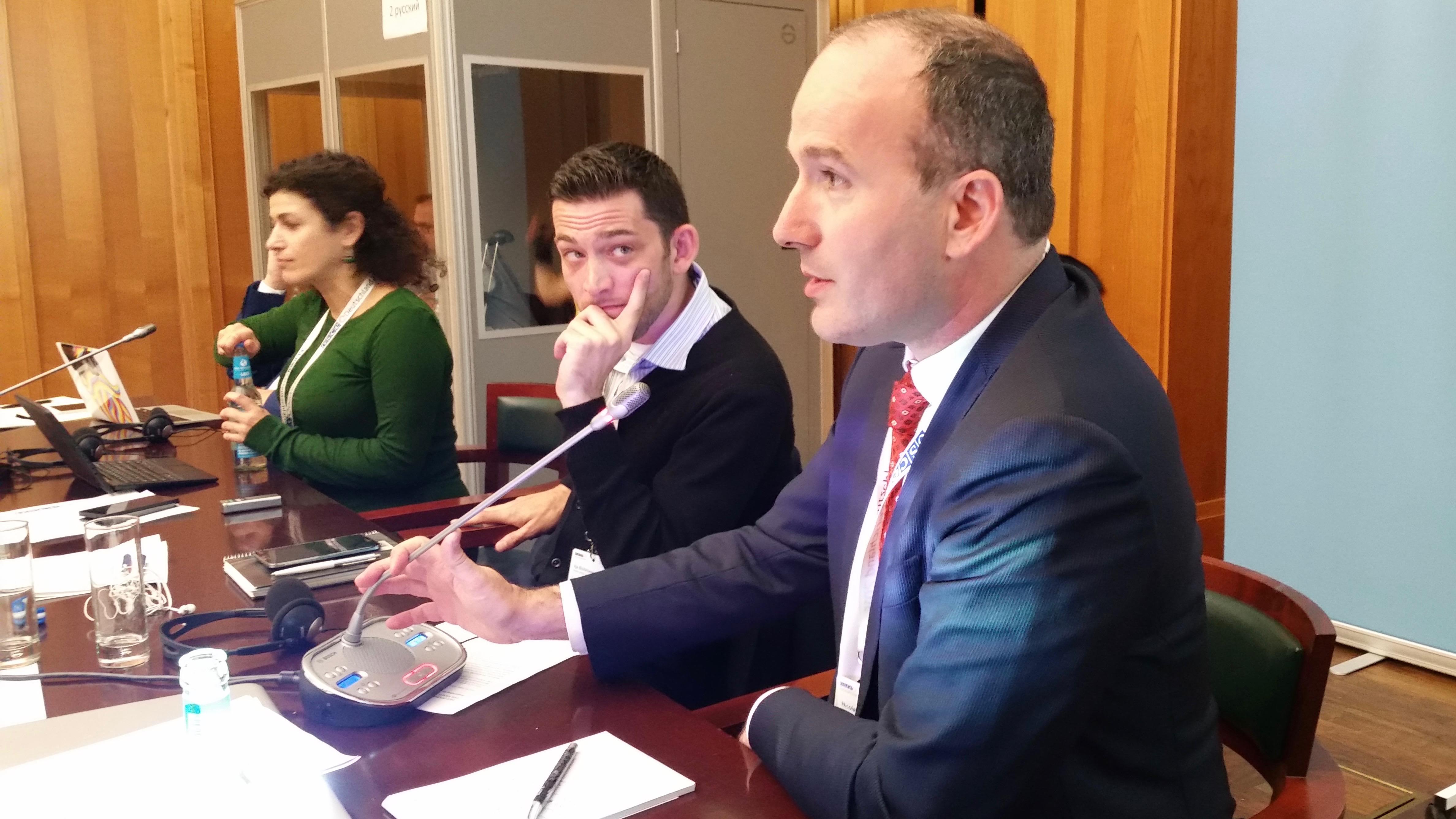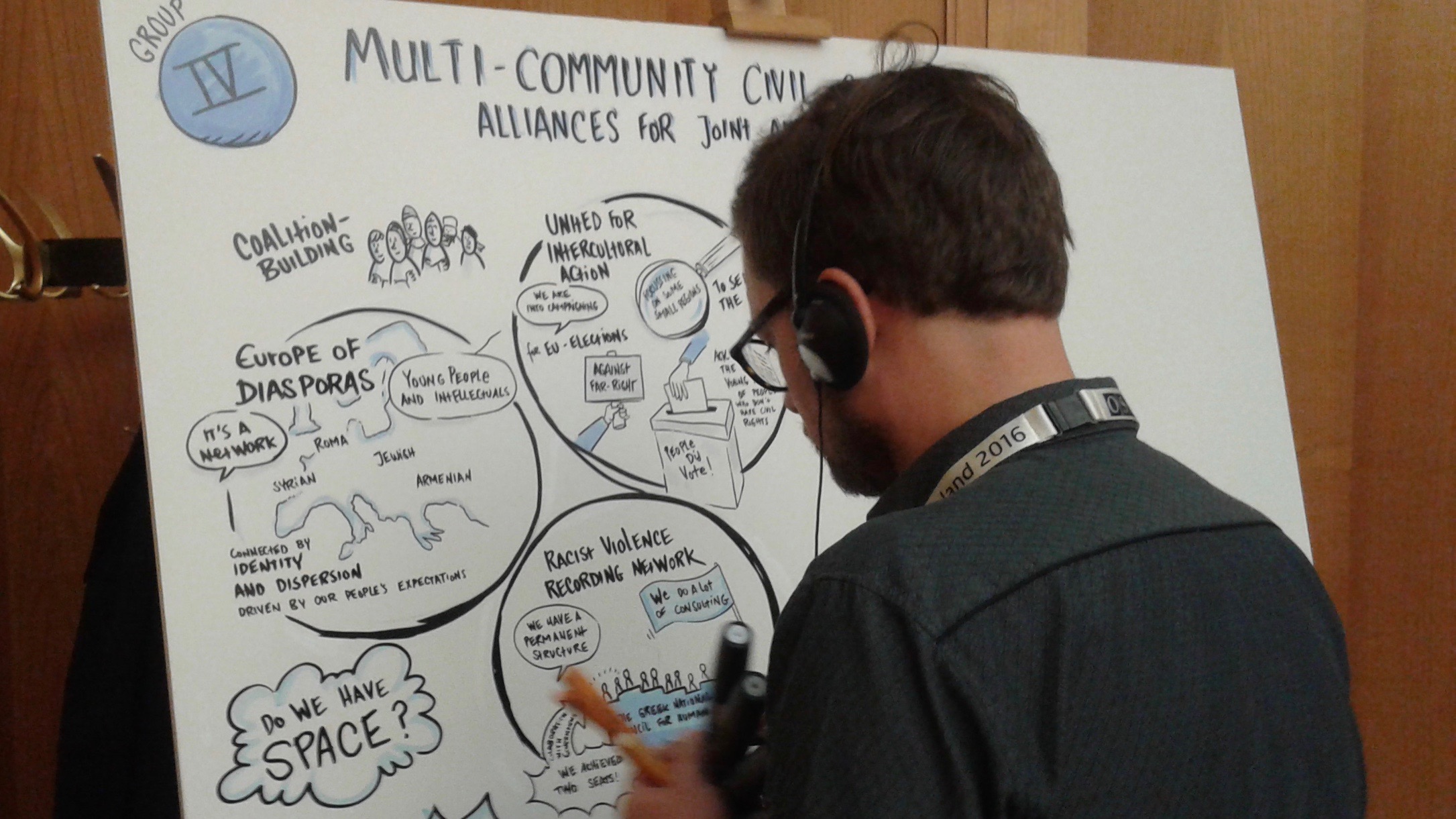1 December 2016
Director of AGBU Europe, Nicolas Tavitian was asked by the OSCE (Organization for Security and Co-operation in Europe) OIDHR (Office for Democratic Institutions and Human Rights) to bring the message of the project “A Europe of Diasporas” to their yearly conference in Berlin. The theme of this year’s conference was on “tolerance and diversity”, with a focus on alliance building.
In his presentation, Nicolas emphasized some of the key lessons from the project “A Europe of Diasporas”. One of which was about what diasporas are, and what they are not: “Diaspora identities are not the same as national identities: by definition, they overlap with nationality – e.g. a Jewish-American, a French-Armenian or a Bulgarian Roma. This is important for our European governments to bear in mind. As reformulated in the final document of the civil society conference, OSCE participating states should “lead by example by relating to diaspora communities as full constituents, not as representing foreign nationality“.
Another concern highlighted in Nicolas’s presentation was eventually included in the final recommendations to OSCE Member States, as such: “the narratives of underrepresented minorities and diasporas [should be] mainstreamed and integrated into school subjects across disciplines whether history, geography, media literacy education, civics.”
If implemented, this idea could lead not only to the Armenian genocide finding its way back into the history books at school, but also to the rediscovery of 1500 years of Armenian presence on the continent, and of their significant contribution to the religious, economic, intellectual and cultural development of European civilization.
Finally, Nicolas concluded with the project’s will to promote the idea that, in order to effect change, individuals belonging to diasporas should be more involved in politics and be represented in political institutions. Here too, it appears that a relative, often dramatic underrepresentation in politics is a feature that is common to the four diasporas involved.
These ideas, together with the initiatives brought forward by participants in the network, should help carve out a place for diasporas in Europe – not for survival, but for recognition and for the flowering of truly European diasporic cultures. And if current trends in Europe and America towards national entrenchment and recrimination against minorities takes hold in some countries, solidarity may be more needed than ever in the face of adversity.
More on the subject here


